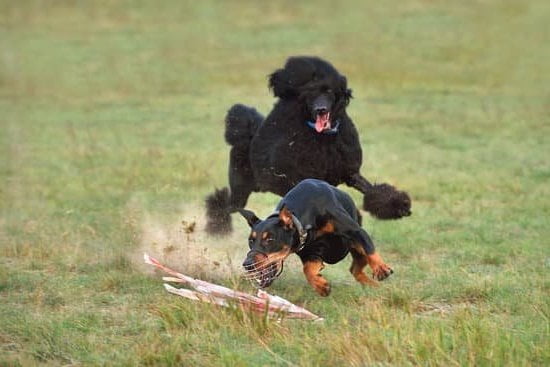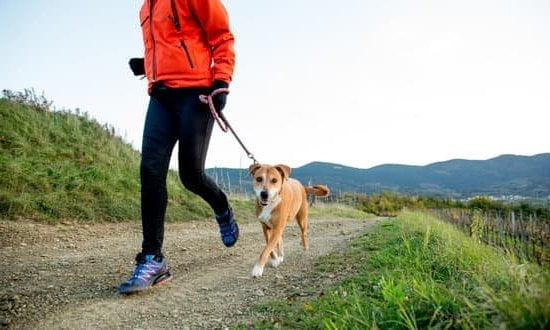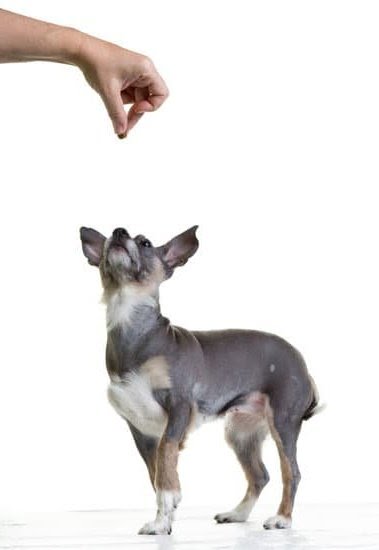If you’ve ever had the unfortunate experience of coming home to find that your dog has chewed up your favorite pair of shoes, you know how frustrating it can be. Dogs chew things up for a variety of reasons – boredom, anxiety, teething – but luckily, there are a few things you can do to help train your dog to stop chewing things up.
The first step is to figure out why your dog is chewing things up in the first place. If your dog is chewing things up out of boredom, you’ll need to find ways to keep them occupied – like providing them with plenty of toys to chew on, taking them on walks, and playing games with them. If your dog is chewing things up because they’re anxious or scared, you’ll need to work on helping them feel more comfortable and safe. You can do this by providing them with a safe place to chew, by training them basic obedience commands, and by socializing them with other people and animals.
Once you’ve determined why your dog is chewing things up, the next step is to start training them not to. This can be a bit tricky, but it can be done with patience and consistency. The first thing you’ll want to do is to put your dog in a “time out” whenever they chew up something they’re not supposed to. You can do this by isolating them in a separate room, or by putting them in their crate. You’ll also want to make sure to give them plenty of positive reinforcement when they don’t chew things up. This can include treats, praise, and petting.
It’s important to be patient when training your dog to stop chewing things up. It may take some time for them to fully understand what you’re asking them to do, but with patience and consistency, you can get them to stop chewing things up.
Dog Training Techniques To Stop Jumping
In order to stop your dog from jumping, you will need to use a combination of techniques to get him to understand that this behavior is not acceptable. The first step is to teach your dog to “sit” on cue. Once your dog is reliably sitting, you will need to put him in a situation where he is likely to jump and then say “no jumping.” If your dog jumps, say “sit” and if he sits, praise him. If he doesn’t sit, you can use a mild correction such as a quick tug on the leash or a squirt of water from a water bottle. Once your dog understands that “no jumping” means to sit, you can start working on getting him to stay sitting until you release him. Be consistent with your commands and rewards and your dog will soon learn that jumping is not an acceptable behavior.
How To Train A Dog To Stop Barking Constantly
There are many reasons why a dog might bark excessively, but most of them boil down to two things: boredom or fear. If your dog is barking for attention, you’ll need to find ways to entertain them that don’t involve barking. If your dog is barking out of fear, you’ll need to help them feel safe and secure.
No matter what the cause, there are a few basic things you can do to help train your dog to stop barking constantly:
1. Start by teaching your dog basic obedience commands, like “sit” and “stay.” This will help you control them when they start to bark and give you a way to distract them from barking.
2. Be consistent with your commands and rewards. If you tell your dog to stop barking and then let them get away with it, they’ll quickly learn that they can get away with it. Be consistent with your rewards and punishments and they’ll learn to obey your commands.
3. Be patient. Training a dog to stop barking can take time, so be patient and keep at it. Eventually, they’ll learn to obey your commands and stop barking.
How To Train My Dog To Stop Barking At Everything
Dogs bark for a number of reasons, including excitement, fear, boredom, and territoriality. While barking is normal dog behavior, it can be annoying and even dangerous if it becomes excessive. If your dog is barking at everything, there are a number of things you can do to train him to stop.
The first step is to determine why your dog is barking. Once you know why he’s barking, you can start working on a solution. If your dog is barking out of excitement, you’ll need to provide him with plenty of exercise and stimulation. If he’s barking out of fear or anxiety, you may need to work on obedience training and socialization. If he’s barking out of boredom, you’ll need to provide him with plenty of toys and activities to keep him occupied.
The next step is to create a training plan. This plan should include a variety of exercises and commands that will help your dog learn to stop barking. Start with basic obedience commands such as sit, stay, and come. Once your dog has mastered these commands, you can move on to more advanced commands such as “quiet” or “no bark.” Be sure to reward your dog for following your commands, and provide plenty of positive reinforcement.
It will likely take some time and patience to train your dog to stop barking at everything, but it’s definitely worth the effort. With a little bit of work and some patience, you can have a dog that’s quiet and well-behaved.
How To Train An Older Dog To Stop Barking
It can be frustrating when your older dog starts barking for seemingly no reason. Luckily, there are some things you can do to help train him to stop.
The first step is to determine why your dog is barking. If it’s because he’s anxious or fearful, you’ll need to work on training him to feel more confident. If it’s because he’s bored or trying to get your attention, you’ll need to provide him with more stimulation and exercise.
Once you’ve determined the root of the problem, you can start working on a training plan. One way to help train an older dog to stop barking is to use positive reinforcement. Whenever he doesn’t bark, reward him with a treat or a favorite toy. You can also teach him to “speak” and “quiet” commands, and reinforce them with treats or praise.
If your dog is particularly stubborn or has been barking for a long time, you may need to enlist the help of a professional trainer. A trainer can help you create a customized training plan and provide support and guidance along the way.
By following these tips, you can help your older dog learn to stop barking and live a quieter, more peaceful life.

Welcome to the blog! I am a professional dog trainer and have been working with dogs for many years. In this blog, I will be discussing various topics related to dog training, including tips, tricks, and advice. I hope you find this information helpful and informative. Thanks for reading!





